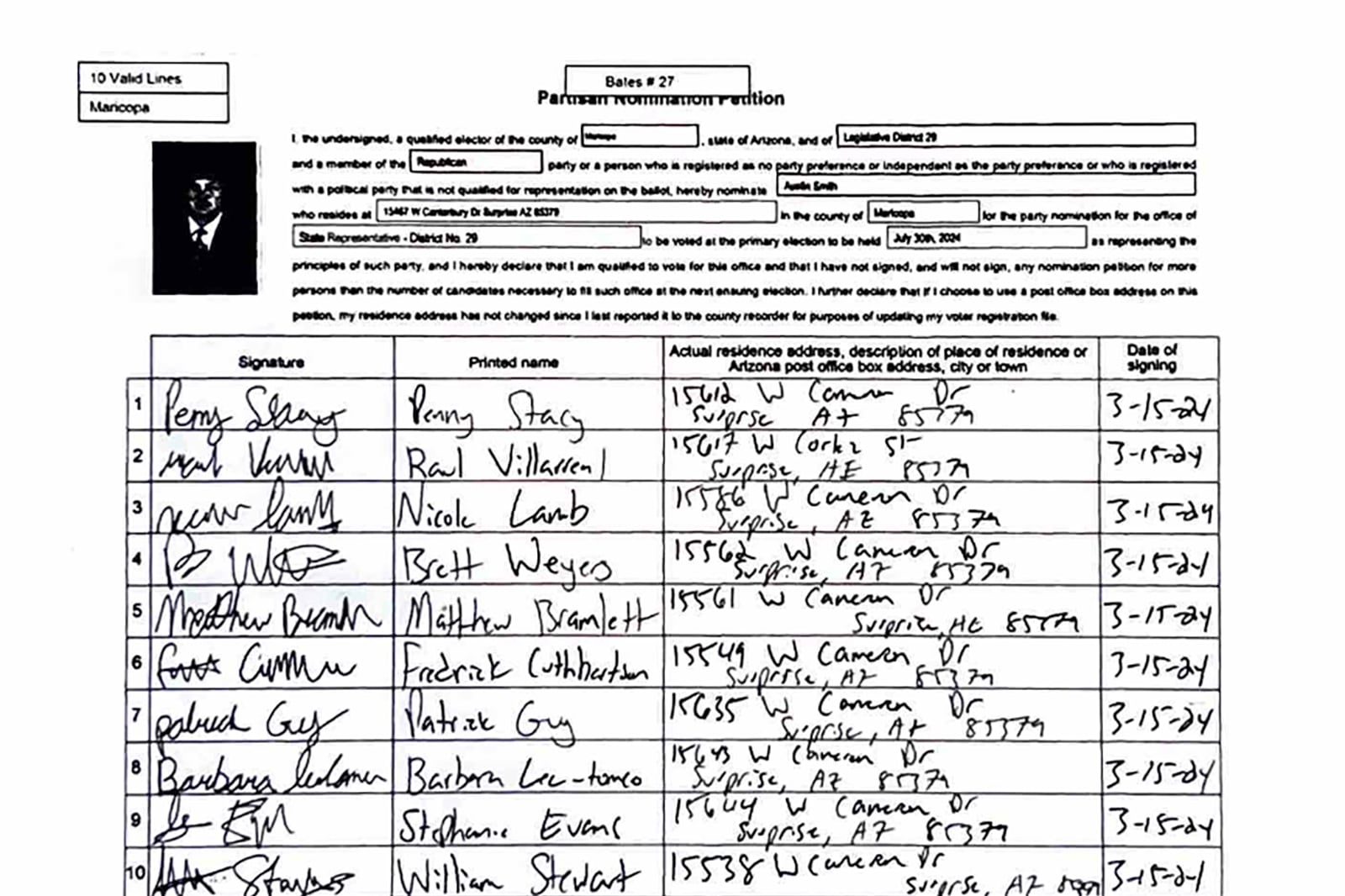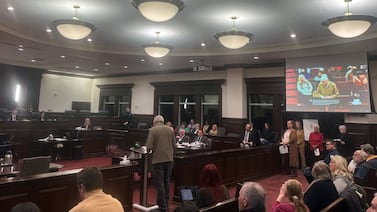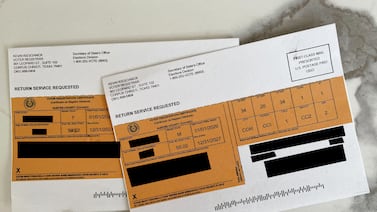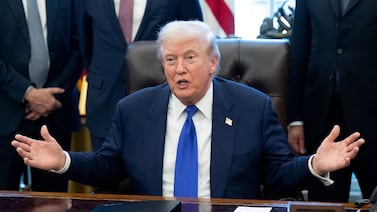Former Arizona state Rep. Austin Smith, a leader of advocacy group Turning Point Action, was indicted on charges that he forged voter signatures on the nomination petitions he submitted for his re-election campaign last year.
A Maricopa County Superior Court grand jury indicted Smith on 14 counts in all: one felony charge for fraudulent schemes and practices; three felony charges for presentment of false instrument for filing; and 10 misdemeanor charges for illegal signing of election petitions. If convicted, he could face jail time.
The June 2 indictment alleges that Smith, a Republican who represented parts of the West Valley in Maricopa County, filed three petitions that contained forged voter signatures. For the 10 misdemeanor counts, the indictment lists the names of 10 voters, and alleges that Smith signed the voters’ names himself.
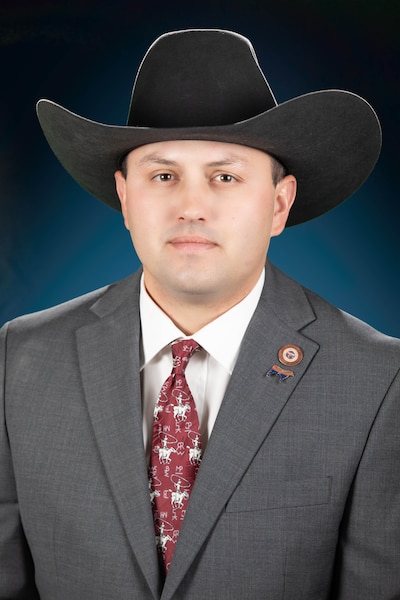
Smith did not immediately respond to a phone message requesting comment.
Candidates for public office must submit a certain number of voter signatures in support of their candidacy in order to get their name on the ballot. In Arizona, those signatures are often challenged in court, sometimes by an opponent. But those cases usually involve challenges to the eligibility of the voters who signed the petitions. Criminal charges, and allegations that a candidate committed forgery, are rare.
The Attorney General’s Office received a dozen complaints related to campaign signature petitions from the Secretary of State’s Office last year. Ten were closed due to a lack of evidence, and another one was referred to the Maricopa County Attorney’s Office, according to an office spokesperson.
Smith, who left office in December, has been a leader of Turning Point Action, an arm of the national conservative organization Turning Point USA, which is based in Phoenix. Up until Tuesday morning, he was listed as a Turning Point Action director on the group’s website, as well as on his LinkedIn and X profiles. Shortly after Attorney General Kris Mayes announced the indictment, both his LinkedIn page and X account were made private.
Turning Point Action did not immediately respond to a request for comment.
An initial lawsuit last year claimed that Smith had forged more than 100 signatures on his petitions. Challengers in that case submitted photos of his petitions, which showed pages of signatures that all appeared to have been signed by the same person. Smith then dropped out of his race. The case didn’t move forward.
At the time of that suit, Smith posted a statement to his X account calling it a coordinated political attack and saying that he was withdrawing in part because he would “need to spend tens of thousands of dollars” to defend himself, “not only against the civil elections matter, but most likely against some sort of criminal investigation that would be launched by those on the left who are unhappy with my politics.”
Jen Fifield is a reporter for Votebeat based in Arizona. Contact Jen at jfifield@votebeat.org.

